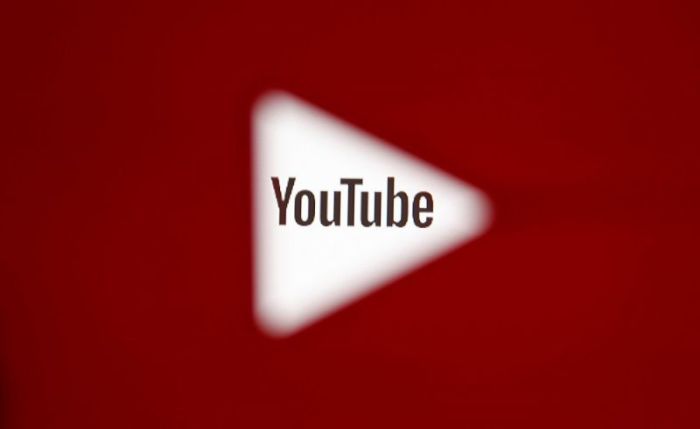YouTube's new policy on abortion 'misinformation' may lead to more of it, pro-life group warns

YouTube’s plans to crack down on abortion “misinformation” could lead to the platform purging any content that it deems “inflammatory” on the subject while enabling real misinformation to spread even further, a pro-life group warns.
Last week, YouTube announced its intention to “remove content that provides instructions for unsafe abortion methods or promotes false claims about abortion safety under our medical misinformation policies” and launch “an information panel that provides viewers with context and information from global health authorities under abortion-related videos and above relevant search results.”
In an interview with The Christian Post, National Right to Life Director of Communications Laura Echevarria warned that YouTube could use Planned Parenthood as one of its “global health authorities” to provide context about abortion.
She cited the largest abortion provider in the United States as one of several pro-abortion groups that have engaged in misinformation following the U.S. Supreme Court’s June 24 Dobbs v. Jackson Women’s Health Supreme Court decision reversing the Roe v. Wade ruling that legalized abortion nationwide.
“There have been quite a number of alarmist reports, [and a] misinformation campaign about ectopic pregnancies and the fact that women won’t be treated for them,” she said. “There’s also been language that has conflated miscarriages with abortion and [asserting] that women who experience miscarriages may be prosecuted.”
Echevarria added, “An induced abortion is the deliberate taking of a human life through the use of either drugs or a surgical procedure and it takes the life of a child in utero.”
“That child is alive when the abortion takes place,” she said, contrasting an induced abortion with a miscarriage, where “the child has already died,” and an ectopic pregnancy, where a pregnancy “occurs outside of the uterus and actually is life-endangering for the mother.”
Echevarria slammed “that kind of misinformation where Planned Parenthood and groups like that have been making these alarmist claims that women who have miscarriages or ectopic pregnancies will not be treated for those.”
Describing such narratives as “disingenuous” and “harmful,” she told CP, “our concern would be if YouTube is going to those kinds of authorities that misinformation could be carried out on a much broader scale than it has already.”
In addition to Planned Parenthood, Echevarria lamented that although the American College of OB/GYNs has “been very trustworthy” in the past, it has become “very political” by seeking to make abortion “readily available.”
She identified the American College of OB/GYNs as one of the other “global health authorities” YouTube might use to provide context about abortion. She reiterated that it and other organizations were “bowing to the abortion industry in their mission statements and their goals and their stated goals now include abortion on demand.”
Additionally, Echevarria warned of the direct impact YouTube’s effort to combat misinformation on the issue of abortion could have on pro-life groups. “If we talk about a living unborn baby in a video, they may deem that as … inflammatory language or something like that,” she predicted. “It’s medically and scientifically accurate but they may deem it inflammatory.”
She suggested that YouTube’s new policy regarding “misinformation” on abortion “could end up being harmful in the long run by not allowing people to have full and complete information at their fingertips.”
At the same time, Echevarria urged YouTube to act as a gatekeeper by preventing women from accessing videos that could cause them to harm themselves, such as videos encouraging them “to ingest or to procure drugs or herbs that could be harmful to them.”
Echevarria also addressed what she characterized as a “misinformation campaign” about pro-life pregnancy centers derided by pro-abortion activists and lawmakers as “fake clinics.”
While she acknowledged that every person on staff at a pregnancy center does not “have a medical background,” Echevarria insisted that at a pregnancy center she once worked at, the nurses who work there as well as the volunteers who perform ultrasounds “all have a degree” and must accumulate continuing education credits.
“It’s harmful for communities for pro-abortion Democrats to claim that these centers are doing wrong and that they’re not helpful and they’re harmful and that’s not true,” she stressed. “I would encourage any of these politicians who are making these claims who have never visited a pregnancy center to visit a pregnancy center and find out what they do and why they do what they do.”
YouTube’s vow to remove misinformation videos about abortion follows a June 17 request from Democratic lawmakers asking Google to scrub pro-life pregnancy centers from search results based on queries related to abortion. The members of Congress told Google, the parent company of YouTube, that the pregnancy centers are “fake clinics that traffic in misinformation and don’t provide comprehensive health services,” in addition to labeling them as “dangerous to women’s health.”
“Pro-abortion Democrats and the abortion industry have really painted a target onto pregnancy centers,” Echevarria maintained.
The letter calling on Google to limit the appearance of pro-life pregnancy centers in search results follows a series of attacks on pro-life pregnancy centers that began shortly after Politico published a leaked draft of the Dobbs opinion on May 2. In many of these attacks, the words “fake clinic” were spray-painted onto the exterior walls of the pro-life pregnancy centers.
Last week, a coalition of Republican attorneys general vowed to investigate Google if it complied with congressional Democrats’ request to limit the appearance of pro-life pregnancy centers in search results related to abortion.
A group of congressional Republicans attempted to pass a resolution declaring that the U.S. House of Representatives condemns attacks on pro-life pregnancy centers, but Democrats defeated their effort.
Ryan Foley is a reporter for The Christian Post. He can be reached at: ryan.foley@christianpost.com




























